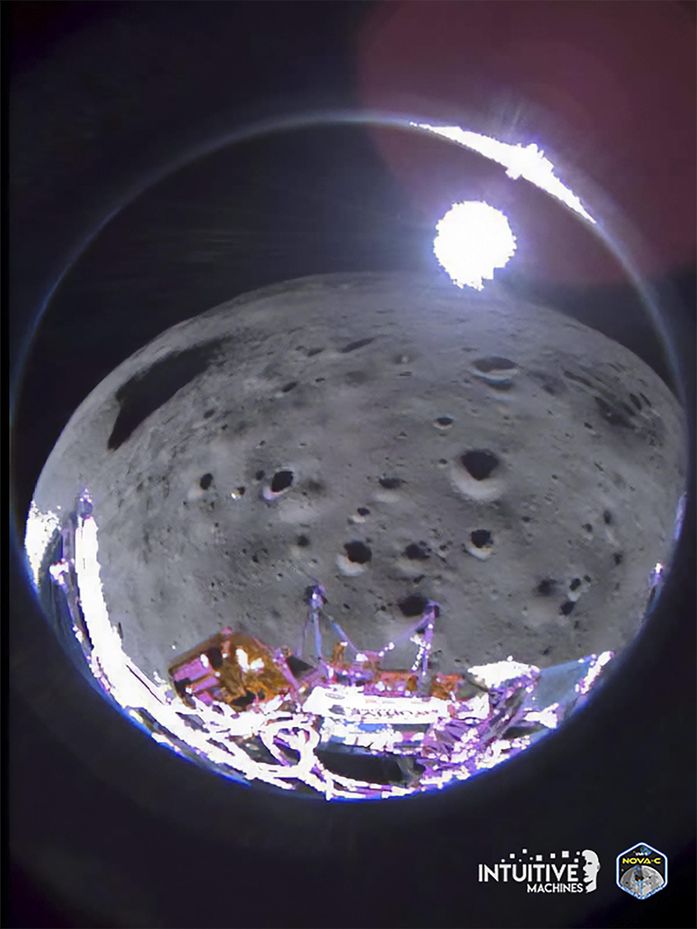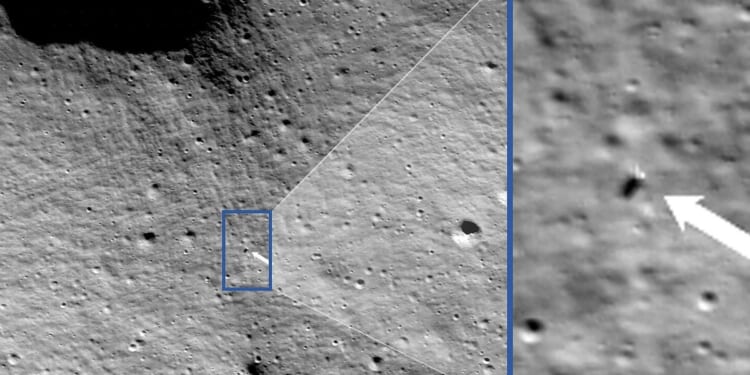
CAPE CANAVERAL, Fla. (AP) — A private lunar lander is expected to cease operations Tuesday, its mission cut short after landing sideways near the south pole of the moon.
Intuitive Machines, the Houston company that built and flew the spacecraft, said Monday it will continue to collect data until sunlight no longer shines on the solar panels. Based on the position of Earth and the moon, officials expect that to happen Tuesday morning. That’s two to three days short of what NASA and other customers had been counting on.
The lander, named Odysseus, is the first U.S. spacecraft to land on the moon in more than 50 years, carrying experiments for NASA, the main sponsor. But it came in too fast last Thursday and the foot of one of its six legs caught on the surface, causing it to tumble over, according to company officials.
Based on photos from NASA‘s Lunar Reconnaissance Orbiter flying overhead, Odysseus landed within a mile or so (1.5 kilometers) of its intended target near the Malapert A crater, just 185 miles or so (300 kilometers) from the moon’s south pole.
According to NASA, the lander ended up in a small, degraded crater with a 12-degree slope. That’s the closest a spacecraft has ever come to the south pole, an area of interest because of suspected frozen water in the permanently shadowed craters there.
NASA, which plans to land astronauts in this region in the next few years, paid Intuitive Machines $118 million to deliver six experiments to the surface. Other customers also had items on board.
Instead of landing upright, the 14-foot (4.3-meter) Odysseus ended up on its side, hampering communication with Earth. Japan’s lander ended up on the wrong side, too, just last month.
Only five countries have landed successfully on the moon. Intuitive Machines became the first private business to join the elite group. Another U.S. company gave it a try last month, but didn’t make it to the moon because of a fuel leak. Both U.S. business hold NASA contracts for more moon landings.
___
The Associated Press Health and Science Department receives support from the Howard Hughes Medical Institute’s Science and Educational Media Group. The AP is solely responsible for all content.












